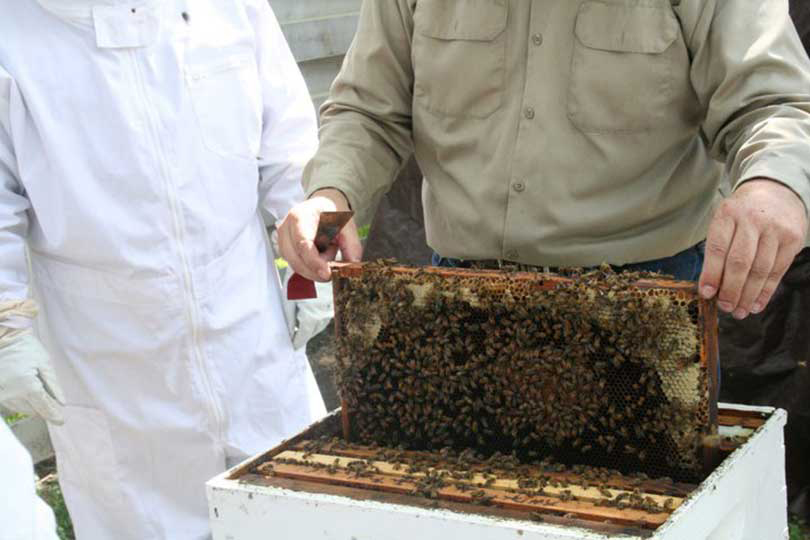By Landee Kieschnick
TFB Communications Intern
South Texas residents are concerned with recent bee activity in their area.
“It’s unusual this time of year to be getting calls about bee activity, but the warmer-than-usual temperatures this winter have allowed the bees to be much more active than they would be normally,” Molly Keck, Texas A&M AgriLife Extension Service entomologist and integrated pest management specialist in Bexar County, said in a report from AgriLife Today.
With temperatures rising above 50 across the state, bees forage for potential food, according to Randy Verhoek, owner of Integribees, a 12,000-bee colony operation in Danbury, Texas.
And bee activity is beneficial for agriculture.
In fact, one in every third bite of food consumed is directly due to honeybee pollination, according to Verhoek.
“Honeybees don’t have a whole lot to do with cereal and grains but contribute more to specialty crops like strawberries, watermelon, and nuts—like almonds. The colorful foods in our diet,” Verhoek said.
Cold wintering storage facilities are a new trend in maintaining bee populations and help reduce contact with the public.
These storage facilities are ventilated specifically for maintaining honeybees at certain temperatures.
“We’re finding out that we are actually losing fewer bees over winter, because they’re kept in perfectly controlled temperatures where they consume less feed,” Verhoek, who is the advisor of Texas Farm Bureau’s Honey and Apiculture Committee, said. “The bees aren’t as active and able to rest some, and they aren’t getting re-infested with mites.”
Urbanization, however, is a challenge Verhoek and other Texas beekeepers face. As more individuals move to the country from the city, beekeepers struggle to expand their colonies while minimizing contact with residents.
“One thing that’s keeping most commercial beekeepers in business is pollination of some sort,” Verhoek said. “It’s real critical that we maintain the healthy population of commercially managed honeybees here in the U.S. that pollinates all these specialty crops.”

